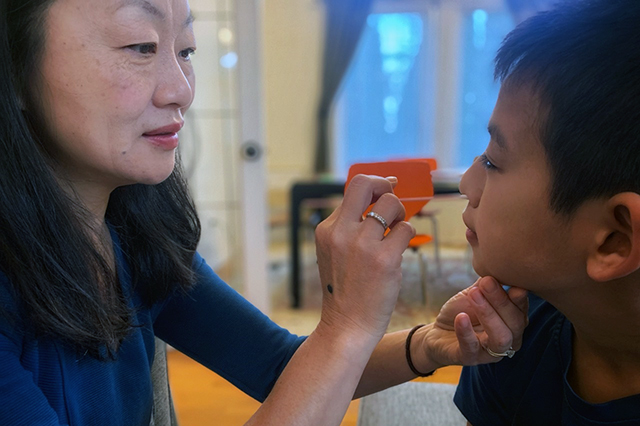
Seattle Pandemic Preparedness Cohort (SeaPrep) study
Researchers at the University of Washington School of Medicine have been awarded a five-year grant from the U.S. Centers for Disease Control and Prevention to study the spread of influenza, respiratory syncytial virus (RSV), SARS-CoV-2 (the COVID-19 coronavirus) and other respiratory viruses in communities.
The scientists will also investigate how the viruses are transmitted and will examine virus genetic variants in light of demographic data and clinical findings, such as disease severity.
The information gleaned would be used to guide public health readiness and responses to respiratory virus outbreaks.
The effort, titled the Seattle Pandemic Preparedness Cohort (SeaPrep) study, will be led by Dr. Helen Chu, professor of medicine at the UW School of Medicine, and of epidemiology at the UW School of Public Health.
“The COVID-19 pandemic demonstrated that we need situational awareness of how viruses are circulating in the community, and in which populations they are detected first. This information helps us be better prepared for the next pandemic,” Chu said.
Among the study’s goals are to determine the prevalence of infections in communities, how infections affect individuals’ health, how easily they spread and the effectiveness of preventive public health measures and vaccines.
The SeaPrep study has two components. One is a longitudinal community cohort of 2,000 children and adults in the Seattle area. Participants will be asked to fill out a weekly online symptom survey and, if they develop symptoms of a respiratory illness, to collect nasal swabs to send to the laboratory for virology testing.
The other component will separately enroll 150 households with a confirmed respiratory viral infection for daily symptom screening and scheduled swabbing for up to two weeks — to help researchers understand how viruses spread within a household.
The study also will provide home test kits for flu and COVID-19 so participants can collect a swab and obtain a test result without waiting for a lab diagnosis.
Starting early this year, the researchers will recruit individuals and households to participate. To ensure that participants adequately reflect the local population, researchers will work with public schools, community organizations, hospitals and clinics to enroll a diverse group of volunteers.
“Given the overall decline in genomic surveillance post-pandemic, the sequences we generate will help catalog the circulating genetic diversity of these respiratory pathogens. The ability to link genomic data to demographic and clinical information as well as outcomes is particularly valuable, because you can ask questions like which strains cause more severe disease,” said Pavitra Roychoudhury, a coinvestigator on the project and a UW research assistant professor of laboratory medicine and pathology.
Nasal swabs will be tested for 26 respiratory pathogens. For viruses of particular interest, such as SARS-CoV-2 and RSV, viral genomes will be sequenced to identify the strains causing infections, and to identify new variants. All viral sequences generated will be uploaded to publicly available genomic-sequence repositories so other scientists can access the data for their research.
“Genomic data play an important role in public health decision-making and selection of vaccine strains, so rapid and open data sharing is one of our priorities,” Roychoudhury added.
UW coinvestigators include Dr. Alexander Greninger, professor of laboratory medicine and pathology, Dr. Janet Englund, professor of pediatrics and a Seattle Children’s infectious disease specialist, Dr. Ana Weil, assistant professor of medicine, and Marco Carone, professor of biostatistics at the School of Public Health.
The researchers have conducted similar past studies, including the Seattle Flu Study, which analyzed influenza virus transmission in more than 300 local households with young children, and the 2022-2024 CASCADIA study, which evaluated the effectiveness of SARS-CoV-2 vaccines.
“This new study builds on past studies to further understand vaccine effectiveness and viral transmission in the post-COVID-19 pandemic period,” Englund said.
The UW Medicine study site is part of the newly established Community and Household Acute Respiratory Illness Monitoring (CHARM) Network with two other sites. One is led by Dr. Louise Laurent at the University of California, San Diego, and the other by Dr. Kathryn Stephenson at Beth Israel Deaconess Medical Center in Boston.